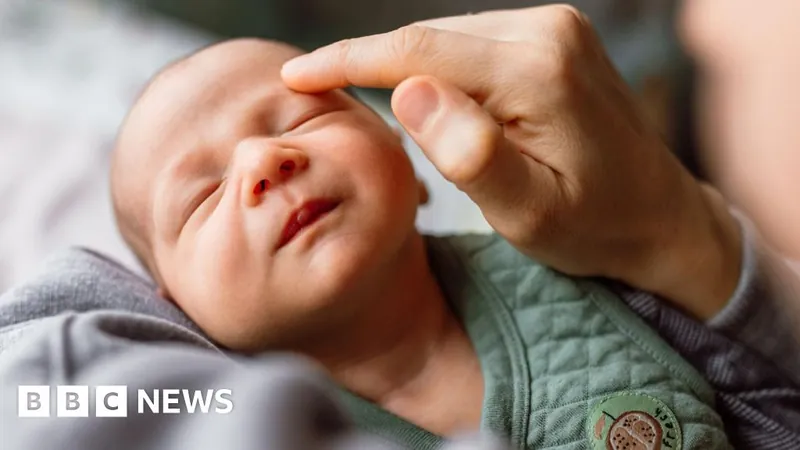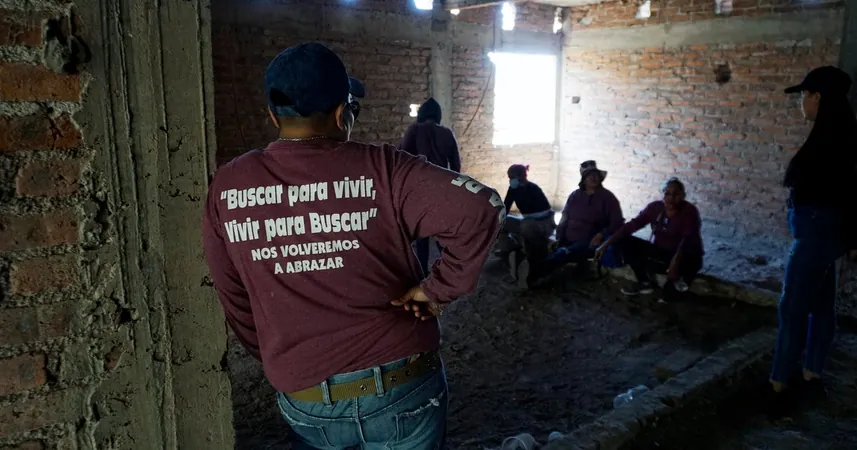
The Power of First Impressions: How a Tiny Bacteria Can Keep Babies Out of the Hospital
2025-06-05
Author: Jia
New Research Reveals Crucial Role of Early Bacteria
In a groundbreaking study, UK scientists have unveiled that the very first bacteria we encounter after birth can have a remarkable impact on our health. This discovery suggests that these beneficial microbes could drastically reduce the risk of infants being admitted to hospitals for severe infections.
The research, conducted by experts at University College London and the Sanger Institute, indicates that exposure to certain beneficial bacteria—specifically Bifidobacterium longum—can halve the likelihood of hospital visits for lung infections among young children.
Harnessing the Microbiome: A Lifesaving Connection
As newborns, we emerge from the womb entirely sterile, but it doesn't take long for our bodies to become teeming with microbial life, a diverse community known as the microbiome. Scientists gathered stool samples from over a thousand newborns within their first week of life and conducted comprehensive genetic analyses to determine the various bacterial species colonizing their bodies. Over the following two years, they monitored these infants' health and hospital admissions.
The results were intriguing: just 4% of babies harboring B. longum required hospitalization for lung infections within the two-year span, in stark contrast to babies with different bacterial profiles, who were two to three times more likely to need medical attention.
Unlocking the Mystery of Immune Development
But how does this tiny bacterium wield its protective power? The leading villain behind many hospital visits for children is the respiratory syncytial virus (RSV). Professor Nigel Field from UCL describes the link between B. longum and RSV as the "million dollar question." While researchers are still piecing together the exact mechanisms, it's likely that B. longum interacts with the immune system—either through the bacteria themselves or through beneficial compounds they produce while digesting breast milk.
Natural Births: A Pathway to Healthier Microbiomes?
Interestingly, the presence of these protective bacteria was primarily observed in babies born vaginally, highlighting the potential importance of birth methods on microbiome formation. However, researchers caution against practices like vaginal seeding, where a swab from the mother is used to expose babies to vaginal bacteria. Professor Field asserts, "Vaginal seeding is not a good thing," reinforcing the notion that beneficial microbes may actually be sourced from the mother’s digestive tract.
The Future of Microbial Therapies for Infants
Looking ahead, the long-term goal of this research is to develop microbial therapies—similar to probiotic yogurts—that could help set infants' microbiomes on a healthy trajectory. Professor Louise Kenny, a consultant obstetrician, emphasizes that while the benefits have only been documented in vaginal births, each baby's microbiome remains unique, and more research is essential to fully understand these dynamics.
Ultimately, this revolutionary research opens the door to new ways of protecting our youngest and most vulnerable populations from the dangers of infectious diseases.




 Brasil (PT)
Brasil (PT)
 Canada (EN)
Canada (EN)
 Chile (ES)
Chile (ES)
 Česko (CS)
Česko (CS)
 대한민국 (KO)
대한민국 (KO)
 España (ES)
España (ES)
 France (FR)
France (FR)
 Hong Kong (EN)
Hong Kong (EN)
 Italia (IT)
Italia (IT)
 日本 (JA)
日本 (JA)
 Magyarország (HU)
Magyarország (HU)
 Norge (NO)
Norge (NO)
 Polska (PL)
Polska (PL)
 Schweiz (DE)
Schweiz (DE)
 Singapore (EN)
Singapore (EN)
 Sverige (SV)
Sverige (SV)
 Suomi (FI)
Suomi (FI)
 Türkiye (TR)
Türkiye (TR)
 الإمارات العربية المتحدة (AR)
الإمارات العربية المتحدة (AR)